If you are an Educator and wish to pursue Professional Development credit, we are also offering this post-summit workshop with seven hours of credit
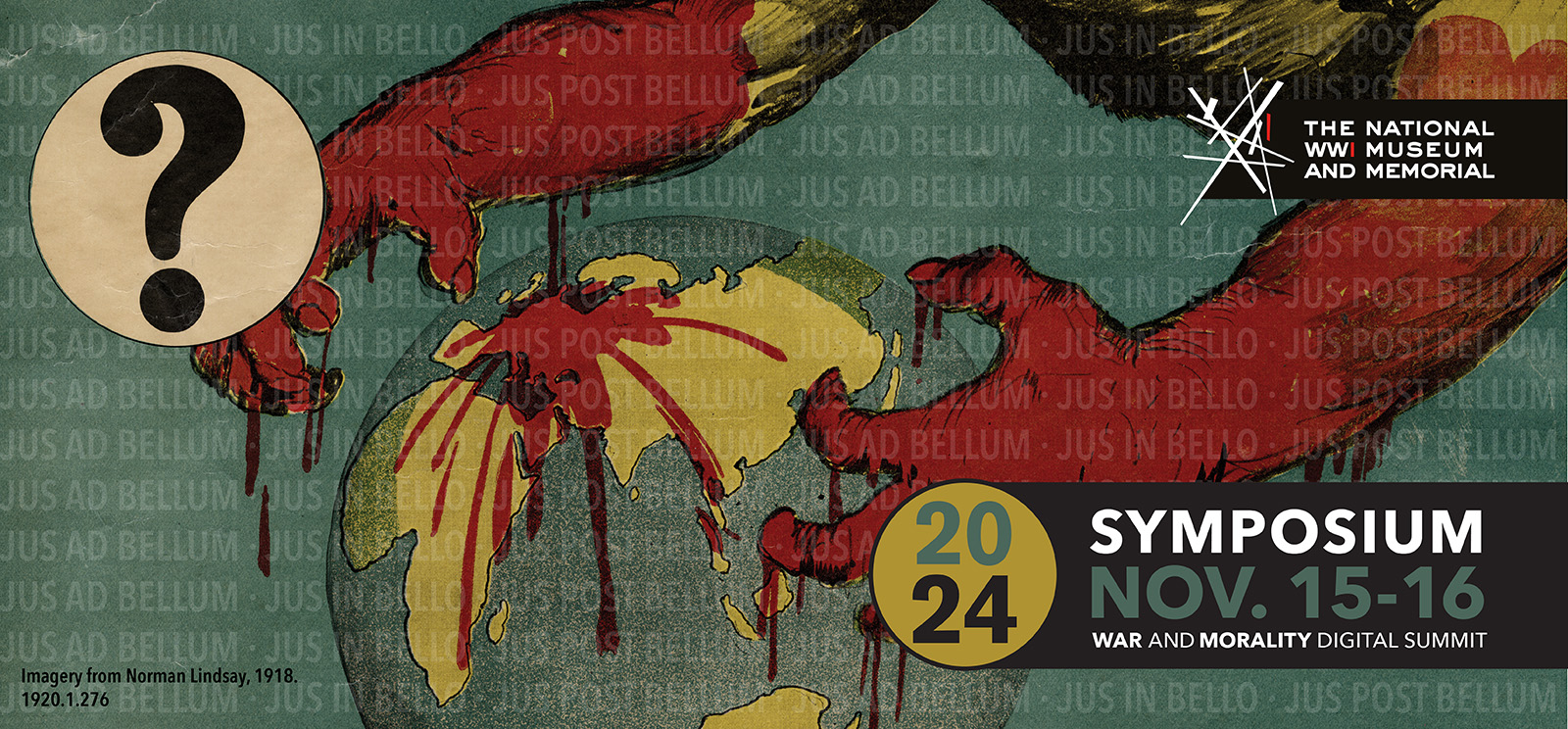
2024 Symposium:
War and Morality Digital Summit
Friday, Nov. 15 – Saturday, Nov. 16, 2024
As the defining event of the 20th century, how does World War I inform our understanding of “just” war?
When President Woodrow Wilson led the United States into WWI to “make the world safe for democracy,” it marked an end of American isolationism and initiated an era of global democratization.
Despite the efforts of multinational coalitions like the Triple Entente and League of Nations, crises have persisted throughout the 20th and 21st centuries, revealing the strategic and ethical complexities that define modern conflict and its impact on our global society.
• National WWI Museum and Memorial • Western Front Association • Modern War Institute at West Point • International Society for First World War Studies • WW1 Historical Association • International Relations Council
Join us this year in a digital summit to explore war and morality.
Historians and military professionals will delve into varied perspectives on questions such as:
What is a “just” war?
What are the ethics of war (e.g. The Hague, Geneva Conventions)?
Who is the most reliable judge of a war’s morality?
Is it important to judge the morality of World War I?
What standards has WWI set for contemporary war ethics?
How have international norms changed? Is war a driver of international laws on armed conflict?
What justifies a pre-emptive strike? What are the moral and ethical implications?
How does a lack of “rules of engagement” contribute to war crimes and reinforce opposition/resistance?
How do effective “rules of engagement” contribute to success at both a tactical and strategic level?
Are “rules of engagement” more than just moral tools in operations? Does the conflicts scope affect their value?
Can a nation achieve victory through strategic bombardment alone?
What role do rules of engagement (ROE) play in mission success and how can their absence reinforce opposition?
Should military education and strategy focus on winning war or preventing them?
Who should attend?
All who have a general or professional interest in the periods prior to, during and after World War I. We especially recommend this symposium to educators, historians and members of organizations that study these periods.
Speakers
Maartje Abbenhuis
Acclaimed historian with a focus on the history of war and neutrality and the role of small states in international relations. She is the author of several books and edited collections, including “The Art of Staying Neutral: The Netherlands in the First World War, 1914-1918”; “An Age of Neutrals: Great Power Politics 1815–1914,” winner of the Choice Outstanding Academic Title; “The Hague Conferences in International Politics 1898-1915”; (with Gordon Morrell) “The First Age of Industrial Globalisation: An International History 1815-1918.” Her latest book, co-authored with Prof. Ismee Tames, entitled “Global War, Global Catastrophe: Neutrals, Belligerents and the Transformation of the First World War” won the Norman Tomlinson Prize for Best Book on the First World War awarded by the World War One History Association.
Abbenhuis is the recipient of two Royal Society of New Zealand Marsden Grants: one in 2004 for work on the borderlands of the Netherlands in the First World War and the other in 2014 for her Hague conferences project. In 2018, she spent a semester as a Residential Fellow at the Netherlands Institute of Advanced Studies in Amsterdam. At present, she is working on a history of dum-dum bullets and industrial violence. Maartje’s research has contributed significantly to the understanding of how historical perspectives on neutrality can inform contemporary debates on war and peace.
Gearóid Barry
Historian specializing in modern European history, with a particular focus on the cultural and political legacies of World War I. He has been a Lecturer in Modern European History at the University of Galway since 2005, where his research encompasses post-war pacifism, peace movements, and religious history, with an emphasis on France and its broader European connections.
Barry is the author of “The Disarmament of Hatred: Marc Sangnier, French Catholicism and the Legacy of the First World War, 1914-1945,” which explores the Christian Democratic peace movement in France and its transnational connections. This work earned the Peace History Society's Scott Bills Memorial Prize. He has also co-edited several volumes on the global impacts of WWI, including “Small Nations and Colonial Peripheries in World War One” and “The Global 1916: An Anti-Imperial Moment.”
In addition to his academic publications, Barry has contributed to 1914-1918-online: The International Encyclopedia of the First World War, and serves on the editorial board of Histoire, Europe et Relations Internationales. His current research investigates the cultural and physical reconstruction of northeast France after WWI, including its religious dimensions.
Jonathan Bratten
Captain in the Maine National Guard, currently serving as the Revolutionary War 250th Coordinator at the U.S. Army Center of Military History.
CPT Bratten earned his MA in History from the University of New Hampshire in 2011, studying early America in the Atlantic World. His book “To the Last Man: A National Guard Regiment in the Great War, 1917-1919” received the 2020 Distinguished Writing Award from the Army Historical Foundation. In 2021, CPT Bratten was appointed as the first scholar in residence at the U.S. Army Center for Military History, focusing on extensive research into the history of military engagements and the evolution of the National Guard. CPT Bratten’s passions for teaching and service are magnified in his research on the history of training and national military tradition.
Risa Brooks
The Allis Chalmers Professor of Political Science at Marquette University. She has been an adjunct scholar at West Point’s Modern War Institute (2017-2020) and is a non-resident senior associate in the International Security Program at the Center for Strategic and International Studies. Her research focuses on U.S. and global civil-military relations, political violence, and the military forces of the Middle East and North Africa.
She is the author of “Shaping Strategy: The Civil-Military Politics of Strategic Assessment” (Princeton University Press, 2008) and co-editor of “Creating Military Power: The Sources of Military Effectiveness” (Stanford University Press, 2007) and “Reconsidering American Civil-Military Relations: Politics, Society and Modern War” (Oxford University Press, forthcoming). Her work has appeared in academic journals such as International Security, The Journal of Conflict Resolution, and Security Studies.
Dr. Brooks’ scholarship and commentary have been featured in numerous public platforms, including Foreign Affairs, The Washington Post, and War on the Rocks. She earned her Ph.D. from the University of California, San Diego, and has held research positions at the International Institute for Strategic Studies and Stanford’s Center for International Security and Cooperation.
Neta Crawford
The Montague Burton Professor of International Relations at the University of Oxford and a Professorial Fellow at Balliol College. She is the co-director and co-founder of the Costs of War Project at Brown University. A distinguished scholar, Crawford's research centers on war, ethics, normative change and emotions in world politics.
Crawford is the author of “The Pentagon, Climate Change, and War: Charting the Rise and Fall of U.S. Military Emissions” (MIT Press, 2022); “Accountability for Killing: Moral Responsibility for Collateral Damage in America's Post-9/11 Wars” (2013); “Argument and Change in World Politics” (2002); and “Soviet Military Aircraft” (1987). She has contributed over two dozen peer-reviewed articles on issues related to war and peace and her opinion pieces have appeared in the Washington Post.
In 2023, Crawford was elected to both the British Academy and the American Academy of Arts and Sciences. She previously received the Distinguished Scholar Award from the International Ethics section of the International Studies Association in 2018 and was a co-winner of the 2003 Jervis and Schroeder Award from the American Political Science. She is currently working on a new project titled “To Make Heaven Weep: Civilians and the American Way of War.”
Richard S. Faulkner
Distinguished military historian and author whose expertise lies in the study of military operations, leadership, and the human experience of war. He is a Professor of Military History at the U.S. Army Command and General Staff College, where he has taught for over two decades, shaping the minds of future military leaders. Faulkner's work delves deeply into the complexities of combat, soldiering, and the broader implications of military conflict, particularly focusing on the U.S. Army's role in the First and Second World Wars.
Faulkner is the author of the award-winning book “Pershing's Crusaders: The American Soldier in World War I,” which offers a nuanced examination of the experiences of American soldiers during the Great War, providing insight into their training, battlefield performance, and the challenges they faced both on and off the front lines. His earlier book, “The School of Hard Knocks: Combat Leadership in the American Expeditionary Forces,” also received critical acclaim for its analysis of leadership dynamics in the AEF. Faulkner's research sheds light on the often-overlooked personal experiences of ordinary soldiers and their commanders, revealing the tension between doctrine, leadership, and the chaotic nature of combat.
He is a graduate of the U.S. Military Academy at West Point and holds a Ph.D. in history from Kansas State University. Faulkner's career as a scholar is enriched by his own military service, having served as an officer in the U.S. Army. His dual perspective as both a historian and a former military officer allows him to approach his subjects with unique insight, making his work particularly relevant to both academic and military audiences.
Nathan Finney
Army Strategist (FA59) currently serving as a special assistant to the commander of U.S. Indo-Pacific Command in the Commander’s Action Group. Finney earned a Ph.D. in History at Duke University in 2022 while also serving as a Goodpaster Scholar. His research focuses on national security decision-making, strategy, civil-military relations, military policy, mobilization, and war. He has a book under contract with Cornell University Press titled “Orchestrating Power: The American Associational State in the First World War” that is based on his dissertation. It explores the creation, structure, activities, and impact of a key institution in the mobilization of the United States for the First World War, and ultimately the nature of American governance during wartime.
Finney is the president of the Military Writers Guild, a managing editor at the British Journal for Military History, a member of the Editorial Advisory Board of the Journal for Military History, a senior mentor for the Project on International Peace and Security at the College of William & Mary, and a member of the Council on Foreign Relations. He is also a founder of three non-profits: the Military Writers Guild, the Strategy Bridge, and the Defense Entrepreneurs Forum. Finney was a Visiting Fellow at the Australian Strategic Policy Institute and a former Non-Resident Fellow at the Modern War Institute at West Point. He is the co-editor and author of the book “Redefining the Modern Military: The Intersection of Profession and Ethics,” and the editor and author of “On Strategy: A Primer.”
Max Margulies
Director of Research and an Assistant Professor at the Modern War Institute at West Point. He also serves as the course director for the thesis and capstone programs in West Point’s Defense and Strategic Studies program. Prior to joining MWI, he was a faculty member in West Point’s Department of Social Sciences, where he taught classes on international affairs and served as Executive Director of the Rupert H. Johnson Grand Strategy Program.
In addition to his primary interests in military personnel policies, innovation, and effectiveness, he also studies and writes broadly on civil-military relations, strategy and conflict. He holds a Ph.D. in Political Science from the University of Pennsylvania, an M.A. in Political Science from Columbia University, and a B.A. in Political Science (Honors) from McGill University.
You can find his publications and C.V. on his personal website, maxmargulies.com, or follow him on his Bluesky account, @mzmargulies.
Dan Maurer
Associate Professor of Law specializing in Criminal Law, Criminal Procedure, and national security law courses. He serves as a Fellow with the National Institute of Military Justice and an Advisor at Texas Tech University School of Law. His research examines civil-military relations, military justice reform and international humanitarian law. Maurer authored “Crisis, Agency, and Law in US Civil-Military Relations” and co-edited “Reconsidering American Civil-Military Relations” with articles published in prestigious journals like the American Criminal Law Review and Harvard National Security Journal. He received the Kevin J. Barry Award in 2022.
Before academia, Maurer was a U.S. Army officer for 22 years, serving as a combat engineer and later as a judge advocate. He has extensive experience in military law, including prosecuting cases at courts-martial and mentoring military lawyers. His recent roles included teaching law at West Point and the Judge Advocate General’s Legal Center and School.
Maurer received his B.A. from James Madison University and his J.D. from The Ohio State University through an Army legal scholarship, later obtaining his LL.M. He is licensed to practice in Ohio and is a member of the bars for the U.S. Court of Appeals for the Armed Forces and the U.S. Supreme Court.
Michael S. Neiberg
The inaugural Chair of War Studies in the Department of National Security and Strategy at the United States Army War College. His published work specializes on the First and Second World Wars, notably the American and French experiences.
His most recent book on the First World War is “Dance of the Furies: Europe and the Outbreak of World War I” (Harvard University Press, 2011). The Wall Street Journal recently named it one of the five best books ever written about the war. Basic Books published his “The Blood of Free Men: The Liberation of Paris, 1944” (2012). In May 2015, Basic Books published his “Potsdam: The End of World War II and the Remaking of Europe.” Oxford University Press published “The Path to War: How the First World War Created Modern America” (2016). His latest book is “When France Fell: The Vichy Crisis and the Fate of the Anglo-American Relationship” (Harvard University Press, 2021), which won the 2022 Society for Military History Book Prize.
Heather Pace Venable
Associate Professor of Military and Security Studies in the Department of Airpower at the United States Air Force’s Air Command and Staff College. She is also the Course Director for the Airpower Strategy and Operations course. As a visiting professor at the US Naval Academy, she taught naval and Marine Corps history. Venable holds a Ph.D. in military history from Duke University, an M.A. in American History from the University of Hawai’i and a B.A. in History from Texas A&M University. She also has attended the Space Operations Course as well as the Joint Firepower Course.
Venable authored “How the Few Became the Proud: The Making of the Marine Corps’ Mythos, 1974-1918”; “‘There’s Nothing that a Marine Can’t Do’: Publicity and the Marine Corps, 1905-1917” in New Interpretations in Naval History: Selected Papers from the Sixteenth Naval History Symposium; and numerous other chapters on airpower in edited collections. She is currently editing the Cambridge Companion to Airpower.
Pauline Shanks-Kaurin
Professor and Admiral James B. Stockdale Chair in Professional Military Ethics at the U.S. Naval War College. She holds a Ph.D. in philosophy from Temple University and specializes in military ethics, “just war theory” and philosophy of law and applied ethics.
She is author of “On Obedience: Contrasting Philosophies for Military, Community and Citizenry”; “Achilles Goes Asymmetrical: The Warrior, Military Ethics and Contemporary Warfare” and “Rethinking Military Honor” (forthcoming late 2025). She served as a contributor for The Strategy Bridge and has published in War on the Rocks, Clear Defense, The Wavell Room, Grounded Curiosity, Newsweek and Just Security. She is a member and serves on the board of directors for the Military Writers Guild.
Jacob Stoil
Chair of Applied History at the Modern War Institute at West Point and an Associate Professor of Military History at the U.S. Army School of Advanced Military Studies. He is a Senior Fellow with the 40th Infantry Division Urban Warfare Center and Assistant Director of the Second World War Research Group (North America). Stoil’s work combines rigorous historical research with contemporary military and policy discussions, focusing on irregular warfare in the Middle East during World War II, a topic he explored during his doctoral studies at the University of Oxford. He holds a B.A. and an M.A. in the history of warfare from King’s College London. He has held positions at the Center for Naval Analysis, Colgate University, and the International Center for the Study of Radicalization and Political Violence.
Stoil has received multiple awards, including Command and General Staff College Silver Pen Awards, for his articles on Israeli paramilitaries and U.S. military preparations. He is actively engaged in researching Israeli military strategy, having conducted numerous interviews with Israeli commanders from various conflicts. Stoil is also involved in translating the Winograd Report on the Second Lebanon War into English.
Beyond traditional academia, Stoil focuses on applying history to modern military challenges. He contributed to the curriculum of the U.S. Army's Urban Warfare Planner’s Course and has advised Army doctrine developers based on his research on urban and subterranean operations. His work has directly shaped elements of upcoming Army brigade doctrine.
Hew Strachan
Wardlaw Professor of International Relations at the University of St Andrews since 2015. He was Lord Lieutenant of Tweeddale 2014-24. He is a Life Fellow of Chichele Professor of the History of War 2002-15. He was a Commonwealth War Graves Commissioner 2006-18 and a Trustee of the Imperial War Museum 2010-17, serving on the national committees for the centenary of the First World War of the United Kingdom, Scotland and France. In 2010 he chaired a task force on the implementation of the Armed Forces Covenant for the Prime Minister, and has been a specialist adviser to the Joint Parliamentary Committee on the National Security Strategy since 2011. He is a Captain in the King’s Bodyguard for Scotland (Royal Company of Archers). In December 2012, Foreign Policy magazine included him in its list of top global thinkers for the year and in 2016 he was awarded the Pritzker Prize for Lifetime Achievement in Military Writing.
Schedule
Friday, Nov. 15
10 a.m.-1:30 p.m. (Central Time)
10 a.m. | Welcome
10:10 a.m. | Ethics and Strategy: WWI and the Shaping of Modern Conflict
11:10 a.m. | WWI Standards for Contemporary Ethics
11:45 p.m. | Break
12 p.m. | Ethics in the Profession of Arms
12:30 p.m. | Neutrality and Morality
Saturday, Nov. 16
10 a.m.-1:30 p.m. (Central Time)
10 a.m. | War, Law and Diplomacy: WWI’s Lasting Legacy
11 a.m. | How Do Ethical Leaders Shape Strategy?
11:20 a.m. | What Standards has WWI Set for Contemporary War Ethics?
11:30 a.m. | When Rules of Engagement Fail
11:45 a.m. | Break
12 p.m. | Is Victory Achievable through Strategic Bombardment?
12:20 p.m. | Jus In Bello for Those Without Uniform
Register
| In-Person Registration Includes access to all digital sessions (via large screen with group seating), the galleries, one additional in-person conversation with museum staff, lunch and light refreshments. |
$100 |
| Online Registration Includes digital access to all sessions. |
$70 |
| Active Museum Volunteer In-person or online. |
$50 |
| Teacher/Student In-person or online. |
$40 |
Cost should not be a barrier to learning about WWI and this important topic. Through the generosity of sponsors to the Museum and Memorial’s Global Education Initiative, we are able to provide complimentary online access to the Digital Summit through email request. Please reach out to education@theworldwar.org.
In partnership with
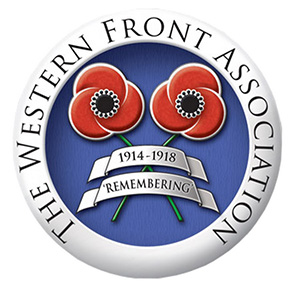
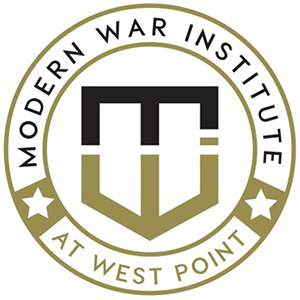
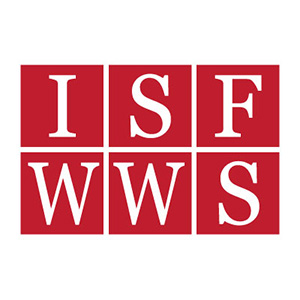
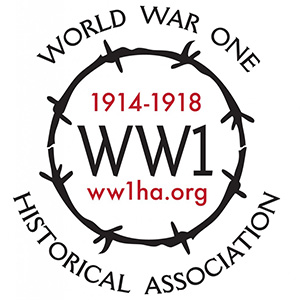
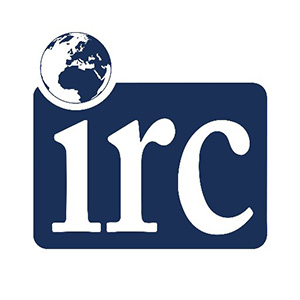
Past Symposia
Milestones and Cornerstones
Oct. 27-28, 2023
1923 ushered in a new era of military commemoration in the wake of WWI. Remembrance became less about victory and more about peace: monuments and cemeteries, enshrining the memory of those who served and sacrificed, were built not as trophies of the past but as touchstones for the future.
Shifting Tides: Citizenship in a World of Conflict
Nov. 4-5, 2022
Engulfed by four years of total war, the world emerged transformed. Amid the unfamiliarity of wartime and post-war societies, populations were both bound by tradition and buoyed by bids to reshape political, economic and social landscapes.
Fractured Fronts
Oct. 29-30, 2021
As the Great War “ended,” many questions confronted the global community that remain just as pressing today as they did one hundred years ago: How does war impact how we understand ourselves and our place in the world? What does it mean to “come home” when the places and people you called home have changed irrevocably?
1919: Peace?
Nov. 1-2, 2019
1919 was a year of sweeping changes in a landscape dramatically altered by years of unrelenting warfare. Leaders advanced towards elusive peace amid political instability, economic uncertainty and social conflict. As terms of the Treaty of Versailles were negotiated, a world reordered faced decisions and realities that would leave a complex legacy.
1918: Crucible of War
Nov. 1-3, 2018
Explore the irrevocable changes five years of cataclysmic conflict wrought on the global stage. As borders were literally and figuratively redrawn, Allies celebrated a victory and the world came to terms with the irreparable devastation and losses of the “war to end all wars.”
1917: America Joins the Fight
Nov. 3-4, 2017
The United States emerged from its traditional isolation in 1917 and began to take its place in the forefront of world affairs. As the U.S. mobilized its farms, industries, and formed a large army, it confronted curtailing civil liberties and faced a possible demand for equity in return for support.
Remembering Muted Voices
Oct. 19-22, 2017
Although the U.S. actively took part in the conflict for only 18 months, the war effort introduced mass conscription, transformed the American economy and mobilized popular support through war bonds, patriotic rallies and anti-German propaganda. Nevertheless, many people desired a negotiated peace, opposed American intervention, refused to support the war effort and even imagined future world orders that could eliminate war.
1916: Total War
Nov. 4-5, 2016
Explore the pivotal year of 1916, where global socio-political tensions created by World War I continued escalation and irrevocably changed the economic, military, and cultural landscape of the world.
1915: Empires at War
Nov. 6-7, 2015
Explore the rising tensions in America and the globally escalating conflict that defined the world in 1915. Follow the trajectories of different countries around the world as the conflict escalated to total war, including fighting in the colonies and East Asia, stalemate in the West, Churchill’s disaster at Gallipoli, mobilization at home, and the polarization of American society around the issue of war.
1914: Global War and American Neutrality
Nov. 7-8, 2014
Examine the origins of, reactions to and early confrontations in the First World War including the political, diplomatic, military, cultural and scientific developments prior to the war that contributed to its outbreak.
